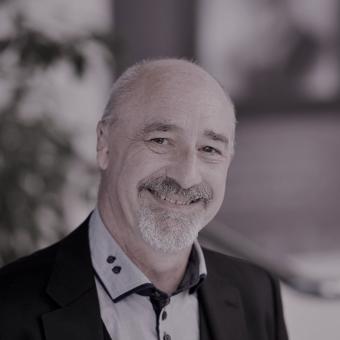Caroline Stevens – head of resourcing at Squire Patton Boggs – discusses the firm, its resourcing strategy and what law firms can do better when it comes to talent attraction
Caroline, can you describe what you do at Squire Patton Boggs in one sentence?
I’m putting together and implementing Squire Patton Boggs’ talent acquisition and resourcing strategy across Europe and the Middle East, as part of the firm’s global HR strategy.
How long have you worked at Squire Patton Boggs and what did you do before you joined the firm?
I’ve been at Squire Patton Boggs for three months now. I qualified as a tax solicitor after training at Clifford Chance, and worked in the City of London and Mexico City before deciding to leave legal practice and move into legal recruitment. I spent six years working in recruitment agencies, before moving in-house to Addleshaw Goddard and, most recently, Nestlé UK&I. Nestlé gave me a real insight into the recruitment world beyond the legal sector, and I hope I can bring some of those key learnings to Squire Patton Boggs.
What are the main challenges in managing Squire Patton Boggs’ resourcing strategy across multiple territories?
Each market in which we operate has its own individual characteristics and demands, although there are fortunately some global trends! We’re very consistent, though, in the caliber of the individuals that we recruit, regardless of their roles within the firm, and that makes a region-wide strategy a lot easier than you’d think!
How closely do the firm’s offices in Europe and the Middle East work together?
Very closely. We work within a Global Practice Group structure, layered with sector-specific groups, which ensures a coherent and joined-up approach to our clients, work and teams. From a people perspective, we have an International HR Director to oversee the region, which ensures close links. Some recent initiatives have included overseas secondments, for example from the UK to Saudi Arabia and from Prague into the UK. Our trainees are able to take advantage of international seats during their training contracts, in European cities such as Brussels and Paris. Some of our future trainees have even had the opportunity to take up temporary paralegal roles in Australia prior to joining us elsewhere in the world!
What areas of their recruitment strategies do you think law firms tend to neglect?
Law firms have historically tended to be very conservative and traditional in their approach to recruitment, and in my view some HR / talent teams have been reluctant to look outside of the sector for new ideas in relation to talent attraction and acquisition. There are an increasing number of firms that are now moving very quickly to promote their employer brand in new and innovative ways, and the rest of the market needs to take care not to be left behind.
Law firms & lawyers have had to become far more BD focused so how does your role tie into that?
Clearly, it’s important when we’re planning business development to ensure that our resourcing strategy supports those plans. To be frank, there’s no point winning work without the right people in place to do it. So my role involves co-ordinating with both our BD teams and our partners to ensure that all our plans are aligned.
How important is it for lawyers to now also be marketers as well as experts in their field?
More important than it ever has been – we work in an extremely competitive market-place. Today’s lawyers need to be technical experts, of course, but they also need to be focused on the best way to meet client needs and demands. That necessitates a more diverse skill-set than ever before, something that we recognise at Squire Patton Boggs – we invest heavily in ensuring our lawyers have all the tools they need to present themselves, their team and our firm in the right way to the right people.
In five words, what makes a Squire Patton Boggs lawyer?
Entrepreneurial, commercial, connected, talented and individual.









